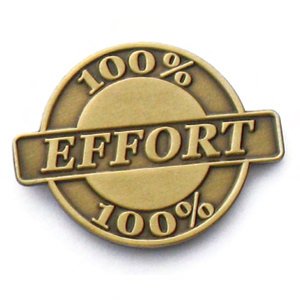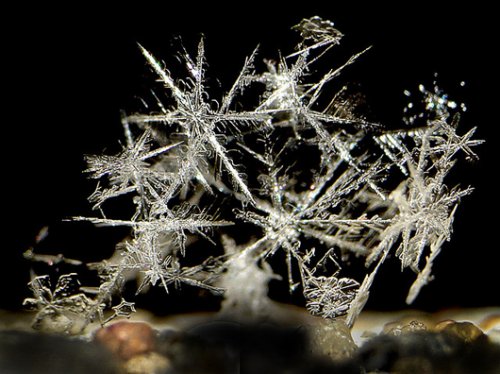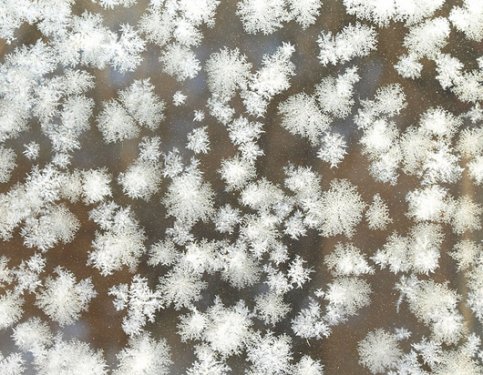-
Posts
8,434 -
Joined
-
Days Won
771
Content Type
Profiles
Forums
Events
Everything posted by ummtaalib
-
Therefore in sister Haya's case the salaat will be invalid inside her home following the Imam in the masjid due to the saffs not continuing till her home...right? Similar to pilgrims following the imams of the harm in their hotel rooms, their salaah will be invalid
-
The Pre-Islamic (Jaahiliyya) Name for Jumu'a & the Events that led to the Name "Jumu'a" In pre-Islamic times [jaahiliyya], Jumu'a was called 'Urooba. Aloosi reports from Sheeshi that 'Urooba, originally from Aramaic, means "mercy." There are various opinions as to when and how the change from 'Urooba to Jumu'a came about: 1. 'Abdullaah Ibn 'Abbaas رضي الله عنهما narrates that it is called Jumu'a because it is derived from jam'un, which means to "collect" or "gather," and on this day Allaah gathered the dirt to make Aadam. This is further corroborated by a hadeeth that 'Aini رحمه الله mentions in his book, [with reference to Ibn Khuzaima] that once the Blessed Prophet صلى الله عليه وسلم asked Salmaan al-Faarsee رضى الله عنه: "Do you know why Jumu'a is special [why it is called Jumu'a]?" Salmaan al-Faarsee رضى الله عنه said, "Allaah and His Blessed Prophet know best." The Blessed Prophet صلى الله عليه وسلم replied, "The essence of your father Aadam was gathered on this day." 2. On this day, Quraish gathered by Qusai [great, great grandfather of the Blessed Prophet صلى الله عليه وسلم] in Daar an-Nadwa (meeting place). 3. On this day, the chief of Quraish, Ka'b ibn Lu'ai, gathered his people to advise and instruct them on various matters. [1] Based on the last two opinions, the name Jumu'a was introduced by Quraish, either in the time of Qusai or Ka'b ibn Lu'ai. Ibn Hazm رحمه الله argued that the etymology of the word Jumu'a is not pre-Islamic, but in fact introduced by the Ansaar (Helpers) رضي الله عنهم of Madeena. He supports his view with the statement of Ibn Seereen رحمه الله, which is narrated by Qurtubi رحمه الله, Aloosi رحمه الله, 'Aini رحمه الله, Haafidh Ibn Hajar رحمه الله and most of the hadeeth masters [muhadditheen] and exegetes [mufassireen], that before the migration of the Blessed Prophet صلى الله عليه وسلم, the Ansaar رضي الله عنهم would observe that the Christians and Jews had appointed special days to gather and worship, discuss matters of faith and on which their leaders would advise the congregations. After this, the Ansaar رضي الله عنهم also decided to appoint a day for all to gather and worship and discuss matters of faith. This was the day of 'Urooba, which they named Jumu'a, since they would gather on this day. [2] [3] Notes: [1] Roohul Ma'aani, 14/101 [2] Muslim, Fadl Yawmul-Jumu'a; Tirmidhi, maa jaa' fee Fadl Yawmul-Jumu'a [3] Shaikh Ibrahim Madani: Essentials of Jumu'a, pp. 2-3
-
I read something about that in a Q/A somewhere, let me search later inshaAllah
-
wa'alaykumus salaam Haya, do you mean that you would follow the imam from within the house?
-
اﻟﻠﻬُﻢﱠ ﺻَﻞﱢ ﻋَﻠَﻰ ﻣُﺤَﻤﱠﺪٍ وﱠﻋَﻠَﻰ ﺁلِ ﻣُﺤَﻤﱠﺪٍ كَمَا ﺻَﻠﱠﻴـْﺖَ ﻋَﻠَﻰ إِﺑـْﺮَاهِﻴْﻢَ وَ ﺑَﺎرِكْ ﻋَﻠَﻰ ﻣُﺤَﻤﱠﺪٍ وﱠﻋَﻠَﻰ ﺁلِ ﻣُﺤَﻤﱠﺪٍ كَمَا ﺑَﺎرَكْتَ ﻋَﻠَﻰ إِﺑـْﺮَاهِﻴْﻢَ إِﻧﱠﻚَ ﺣَﻤِﻴْﺪٌ ﻣَﺠِﻴْﺪٌ O Allah, shower Your mercy upon Hadhrat Muhammad (Sallallahu Alaihi Wasallam) and the family of Hadhrat Muhammad (Sallallahu Alaihi Wasallam), as You showered Your mercy upon Hadhrat Ebrahim (Alaihis Salaam), and shower Your blessings upon Hadhrat Muhammad (Sallallahu Alaihi Wasallam) and the family of Hadhrat Muhammad (Sallallahu Alaihi Wasallam), as You showered Your blessings upon Hadhrat Ebrahim (Alaihis Salaam). Indeed You are praiseworthy and most glorious. Ayoob Sakhtiyaani (Rahmatullahi Alaihi) at the Raudha Mubaarak Hadhrat Abdullah bin Mubaarak (Rahmatullahi Alaihi) says that I heard Imaam Abu Hanifah (Rahmatullahi Alaihi) say: “When Ayoob Sakhtiyaani (Rahmatullahi Alaihi) was in Madinah Tayyiba, I was also present and I watched to see how he was going to present his salaam to Rasulullah (Sallallahu Alaihi Wasallam). I saw him facing the grave with his back towards the Qiblah. He was standing there without saying a word, rather he just cried and cried. (Fazaail Madina) - Ihyaauddeen يَا رَبِّ صَلِّ وَ سَلِّمْ دَائِمًا أَبَدًا عَلَى حَبِيبِكَ خَيرِ الخَلْقِ كُلِّهِمِ
-
A Good Death Some people pass away in such a blessed manner, as if they had requested the angel of death to take their soul in that way. These things happen even up to this day but generally to those whose hearts are very clean. We just need to make slight adjustments to our eyes, ears, tongue and heart. When a person’s soul and body is totally compliant to the commands of Allah Ta‘ala, then Allah Ta’ala becomes happy with him and at the time of death he is given the glad tidings: يَا أَيَّتُهَا النَّفْسُ الْمُطْمَئِنَّةُ ﴿٢٧﴾ ارْجِعِي إِلَىٰ رَبِّكِ رَاضِيَةً مَّرْضِيَّةً ﴿٢٨﴾ فَادْخُلِي فِي عِبَادِي ﴿٢٩﴾ وَادْخُلِي جَنَّتِي ﴿٣٠﴾ “O compliant soul! Return to your Rabb in a condition that you are pleased with Him and He is pleased with you. Enter among my pious servants and enter my Jannat.” Source: Al-Haadi
-

Signs in Allah's Wonderous Ceations
ummtaalib replied to ummtaalib's topic in General Islamic Articles
Signs of Allah in the Creation of the Wind وَٱللَّهُ ٱلَّذِىٓ أَرْسَلَ ٱلرِّيَٰحَ فَتُثِيرُ سَحَابًا فَسُقْنَٰهُ إِلَىٰ بَلَدٍ مَّيِّتٍ فَأَحْيَيْنَا بِهِ ٱلْأَرْضَ بَعْدَ مَوْتِهَا ۚ كَذَٰلِكَ ٱلنُّشُورُ And Allah it is Who sendeth the winds and they raise a cloud; then We lead it unto a dead land and revive therewith the earth after its death. Such is the Resurrection -
aishazaynap...i know you wonder about these things and ask out of curiosity, You don't need to worry about being understood wrong
-
wa'alaykumus salaam warahmatullah and why should we assume all that he has is football? If he can play football he must be healthy right even if not educated with a good degree? So he can work as a labourer, a shop assistant, a bus or train or taxi driver, a street cleaner......endless possibilities
-

Signs in Allah's Wonderous Ceations
ummtaalib replied to ummtaalib's topic in General Islamic Articles
The Bee And thy Lord inspired the bee, saying: Choose thou habitations in the hills and in the trees and in that which they thatch; Then eat of all fruits, and follow the ways of thy Lord, made smooth (for thee). There cometh forth from their bellies a drink divers of hues, wherein is healing for mankind. Lo! herein is indeed a portent for people who reflect. A Healing for Mankind فِيهِ شِفَآءٌ لِلنَّاسِ (in which there is a cure for men.) meaning there is a cure in honey for diseases that people suffer from. Some of those who spoke about the study of Prophetic medicine said that if ﴿Allah﴾ had said, `in which there is the cure for men', then it would be the remedy for all diseases, but He said, `in which there is a cure for men', meaning that it is the right treatment for every "cold'' disease, because it is "hot'', and a disease should be treated with its opposite. Al-Bukhari and Muslim recorded in their Sahihs from Qatadah from Abu Al-Mutawakkil `Ali bin Dawud An-Naji from Abu Sa`id Al-Khudri that a man came to the Messenger of Allah and said, "My brother is suffering from diarrhea''. He said, «اسْقِهِ عَسَلًا» (Give him honey to drink.) The man went and gave him honey, then he came back and said, "O Messenger of Allah! I gave him honey to drink, and he only got worse.'' The Prophet said, «اذْهَبْ فَاسْقِهِ عَسَلًا» (Go and give him honey to drink.) So he went and gave him honey, then he came back and said, "O Messenger of Allah! it only made him worse. '' The Prophet said, «صَدَقَ اللهُ وَكَذَبَ بَطْنُ أَخِيكَ، اذْهَبْ فَاسْقِهِ عَسَلًا» (Allah speaks the truth and your brother's stomach is lying. Go and give him honey to drink.) So he went and gave him honey, and he recovered.'' It is reported in the Two Sahihs from `A'ishah, may Allah be pleased with her, that the Messenger of Allah used to like sweet things and honey. This is the wording of Al-Bukhari, who also reported in his Sahih from Ibn `Abbas that the Messenger of Allah said: «الشِّفَاءُ فِي ثَلَاثَةٍ: فِي شَرْطَةِ مِحْجَمٍ، أَوْ شَرْبَةِ عَسَلٍ، أَوْ كَيَّةٍ بِنَارٍ، وَأَنْهَى أُمَّتِي عَنِ الْكَي» (Healing is to be found in three things: the cut made by the cupper, or drinking honey, or in branding with fire (cauterizing), but I have forbidden my Ummah to use branding.) (Quran Tafsir Ibn Kathir) The Honey Miracle Do you know how important a food source the honey, offered to man by Allah by means of a tiny animal, is? Honey is composed of sugars like glucose and fructose and minerals like magnesium, potassium, calcium, sodium chlorine, sulfur, iron and phosphate. It includes B1, B2, C, B6, B5 and B3 vitamins changing according to the qualities of nectar and pollen sources. Besides; copper, iodine, iron and zinc exist in it in small quantities. Also, several kinds of hormones are also present in its content. As stated in the Qur'an, honey has a feature of 'healing men'. This scientific fact was also confirmed by the scientists who assembled during the World Apiculture Conference held on 20-26 September 1993 in China: "During the Conference, treatments with honey derivatives were discussed. Especially the American scientists expressed that honey, royal jelly, pollen and propolis (bee resin) had the property of curing many illnesses. A Romanian doctor stated that he tried honey on cataract patients, and 2002 out of his 2094 patients recovered completely. Polish doctors also informed that bee resin helped t cure many diseases like haemorrhoid, skin problems, gynaecological diseases and many others." (Hurriyet Newspaper, 19 October 1993) Nowadays, agriculture and bee products has become a new branch of research in countries advanced in science. Other benefits of honey may be described as below: Easily digested: Because the sugar molecules in the honey can convert into other types of sugar (fructose to glucose), the honey is easily digested by the most sensitive stomachs despite its high acid concentration. It also helps kidneys and intestines to function better. Has a low calorie level: Another quality of the honey is that, when it is compared with the same amount of sugar, it gives 40% less calories to the body. Although it gives great energy to the body, it does not add on weight. Rapidly fuses into blood: When accompanied by mild water, honey fuses into the bloodstream in 7 minutes. The free sugar molecules in it make the brain function easier... Supports blood formation: Honey provides an important part of the energy needed by the body for blood formation. In addition, it helps cleaning the blood. It has some positive effects in regulating the blood circulation and facilitating it. Also, it functions as an important protection against capillary problems and arteriosclerosis. Does not accommodate bacteria: This bacteria killing property of the honey is named as the "inhibition effect". The experiments conducted on honey resolve that, its bacteria killing property increases twice when diluted with water. It is very interesting to note that the newborns in the bee colony are nourished with diluted honey by the bees responsible of their supervision - as if they know this feature of the honey. Royal Jelly: Royal jelly is a substance produced by worker bees inside the beehive. Inside this nutritious substance, there exist sugar, proteins, fats and many vitamins. It is used in problems which occur as a result of tissue deficiency or body frailty. It is obvious that honey, which is produced in much higher amounts than the requirement of the bees, is made for the benefit of man. And it is also obvious that bees cannot perform such an unbelievable task "on their own"... -
Earning as a Sportsman Q: I would like to know whether money earned through football will be halaal or haram? A: Before addressing the issue in question, it is important for us to discuss few preliminary aspects in order that the issue be understood in correct perspective. Man’s sole purpose and object for being sent to this world is to worship Allah Ta’ala and live his life in total conformity with the mubaarak teachings of Rasulullah (Sallallahu Alaihi Wasallam). However, while remaining in this worldly abode, man is bound by worldly conditions and circumstances. He is in need of food and drink for his physical existence as he is dependent on earthly resources (e.g. clothing, shelter etc.) for his physical continuity. Hence Allah Ta’ala allowed him to earn a halaal livelihood and to indulge in worldly activities, in the view that this will serve as a means of assisting him to fulfil the ultimate purpose of his creation i.e. the obedience of Allah Ta’ala. Despite man being given permission from the side of Shari’ah to earn a livelihood, it is necessary that in the course of earning a livelihood he does not disobey Allah Ta’ala. Hence, the permission for earning a livelihood is subject to certain conditions being met: 1. The means of livelihood and income one engages in must be permissible in Shari’ah. If one engages in a haraam employment in order to earn a living, it will be ruled as impermissible. E.g. If one accepts employment in a bottle store for selling wine, it will be impermissible. Thus adopting such a means of livelihood will not be permissible. 2. If the means of livelihood one adopts is of a permissible nature in Shari’ah, however it is accompanied with certain impermissible factors, then involving oneself in such a means of livelihood will be impermissible. (E.g. Selling grape juice to a person regarding whom it is known that he will use it to manufacture wine. Though the selling of grape juice is permissible, but since it is now accompanied with the factor of manufacturing wine, earning an income through this means will be impermissible.) 3. If the means of livelihood one engages in is permissible, however it becomes the cause for preventing one from the obedience of Allah Ta’ala, then involving oneself in such a means of livelihood will be impermissible. E.g. one takes employment in a certain company. The company does not allow one to go to the Musjid to perform Jumuah Salaah. Since this employment is becoming the means of preventing one from one’s Deeni obligations, it will be impermissible for one to take employment is such a company. Let us now closely examine the issue of earning one’s livelihood through playing for a national or international sports team in the light of the Quraan and Sunnah in order to ascertain whether this type of a livelihood is recognized in the eyes of Shariah. Below are a few important points which will prove that this type of an occupation is impermissible in Shariah on account of the fact that all the above mentioned conditions are not met: 1. The contract being an invalid and impermissible contract according to Shariah The contract of playing for a team is an invalid and impermissible contract in Islam. In order for any employment to be permissible in Shariah, it is a precondition that the employment be recognized by Shariah i.e. It will have to enter within the ambit of an Islamic contract and fulfil its conditions. An Islamic contract is that contract where one is employed to carry out a halaal service, the benefit of which will be obtained by the employer. E.g. a person hires the services of a grass cutter to cut his lawn. In this case, there is a halaal service rendered by the grass cutter which makes him eligible for a remuneration. Hence, upon completing the task assigned to him, he will be deserving of his wages. On the contrary, the fuqaha have explained that if a person keeps an animal on display and charges people a fee for viewing it, then this is an invalid remuneration since no halaal service is being obtained by the one paying the fee. Viewing the masalah in the question and applying the above-mentioned principle one will understand that this type of a contract and employment is impermissible and invalid in Shariah. In the case where the team owner or manager buys off the player (for a certain period of time) and thereafter pays him monthly for training and playing for different matches, then this type of a contract is impermissible since the monthly salary the player receives is not in lieu of any Shar’ee recognised service that he is providing the team owner with. The training of the player is confined to his own self and there is no physical benefit or valid Shar’ee recognised service that is being obtained by the team owner in lieu of the wage he is giving the player. Merely kicking the ball and training is not viewed in Shari’ah as a valid service rendered to the team owner. Instead the benefit of training is confined to the player. Hence we understand that this contract is an invalid and impermissible contract in Shariah and the wealth received through it is also impermissible. 2. The dressing being un-Islamic In certain sports, (e.g. rugby and soccer etc.), one is required to wear clothing that exposes part of the satr. In doing so, one will be sinful on account of him exposing his satr before men and women. At times one is required to wear clothing sponsored by kuffaar companies e.g. S.A.B. (South African breweries) upon which they will have their logo e.g. Castle lager. The player wearing such attire will be supporting the haraam practices of the kuffaar and promoting their products. Hence the Hadith of Rasulullah (Sallallahu Alaihi Wasallam) prohibiting one emulating the kuffaar and their ways is clear in this regard: عن ابن عمر قال قال رسول الله صلى الله عليه وسلم من تشبه بقوم فهو منهم. (سنن أبي داود رقم 4033) Whoever imitates a nation is counted from among them. 3. The ambiance and Environment being un-Islamic At the time of the match one will find that there is a host of haraam activities taking place at the sports field. Music is played and intermingling of sexes takes place. People openly consume wine and are dressed in an immodest and shameless manner. Zina (fornication and adultery) takes place in that environment and gambling is the highlight of such matches. One possessing a little Imaan will understand that the ambiance of such a place is certainly not in keeping with deeni ethos and the principles of Islam. 4. The match being televised Among the many sinful activities associated with these types of sport, is that it is televised thus making it possible for people around the globe to view it. Nabi (Sallallahu Alaihi Wasallam) has said: عن عبد الله قال سمعت النبي صلى الله عليه وسلم يقول إن أشد الناس عذابا عند الله يوم القيامة المصورون (بخاري 2/880) Abdullah bin Mas’ood (Radiyallahu Anhu) reports that he heard Nabi (Sallallahu Alayhi Wasallam) say: “Undoubtedly, the people subject to the worst forms of punishment on the day of Qiyaamah are those involved in picture-making.” 5. Foregoing salaah at the time of the match and missing fasts during the month of Ramadhaan During the match, many salaah become qadhaa, or if they are performed, then they are not performed on its prescribed time with jamaat in the Musjid. Hence this type of activity causes one to become sinful and neglect his main obligations which he owes towards Allah Ta’ala. If the month of Ramadhaan comes, and one is scheduled for a match, then generally on account of the match, many players forgo the fasts of Ramadhaan. In the mubaarak Ahadith, Nabi (Sallallahu Alaihi Wasallam) had cursed the person who does not honour the month of Ramadhaan and fulfil its rights. On account of the abundant wrongs that are associated with this form of livelihood, one will clearly understand that it is impermissible in Shari’ah for one to adopt such a means to earn one’s livelihood. Answered by: Mufti Zakaria Makada Checked & Approved: Mufti Ebrahim Salejee (Isipingo Beach)
-
Sunnats and Aadaab of Sleeping – Part 2 1. One should cleanse one’s mouth by making miswaak before sleeping. عن أبي هريرة رضي الله عنه قال : كان رسول الله صلى الله عليه و سلم لا ينام ليلة ولا ينتبه إلا استن . رواه الطبراني في الأوسط وفيه من لم أجد ذكره وقد رواه أحمد من فعل أبي هريرة وفيه محمد بن عمرو وهو ضعيف مختلف فيه (مجمع الزوائد رقم 2568) Hadhrat Abu Hurayrah (Radhiallahu Anhu) reports that whenever Rasulullah (Sallallahu Alaihi Wasallam) retired to bed at night or awoke, he would use the miswaak. 2. One should apply surmah on the eyes before sleeping. عن ابن عباس رضي الله عنهما أن النبي صلى الله عليه و سلم قال اكتحلوا بالإثمد فإنه يجلو البصر وينبت الشعر وزعم أن النبي صلى الله عليه و سلم كانت له مكحلة يكتحل بها كل ليلة ثلاثة في هذه وثلاثة في هذه. (ترمذي رقم 1757) Hadhrat Abdullah bin Abbaas (Radhiallahu Anhuma) reports that Rasulullah (Sallallahu Alaihi Wasallam) said: “Apply surmah by using ithmid (a type of surmah), for certainly it cleans the eyes and causes the hair (eyelashes) to grow.” Hadhrat Abdullah bin Abbaas (Radhiallahu Anhuma) further says that Rasulullah (Sallallahu Alaihi Wasallam) kept a container of surmah from which he used to apply surmah every night. He would apply the surmah thrice in the right eye and thrice in the left eye.
-

`Aqeedah Tahawiyyah Commentary - Audio Duroos
ummtaalib replied to Arslan's topic in Aqeedah (Beliefs)
Not just delicate but also I found, some points quite beyond my understanding...It was Shaykh Riyadhul Haqq whose duroos were also available on audio tapes however unfortunately, the series was never completed. I enquired a couple of times a few years ago and was told inshaAllah he will one day continue. The notes I made were too many and were never typed up...I think they were recently buried along with other papers Jazaakillah Acacia for posting the text -

Not able to start topic on Islamic Books forum?
ummtaalib replied to Arslan's topic in Announcements / Questions / Feedback
Assalaamu 'alaykum warahmatullah Yes the books section (as well as the events section) is not open to all members. The decision was taken initially to restrict posting of unauthentic books and events. Perhaps we can lift this restriction and moderate more closely inshaAllah. Brother Arsalan, while browsing or searching, please feel free to report any posts which have doubtful info....Though a lot of posts were removed many remained and we were not able to read thoroughly every single post when the forum made changes. May I take this opportunity to say Jazaakallaahu khayran for your valuable and much appreciated contributions. May your reward be in abundance for the time spent in propagating haqq..aameen -

Exams! A Time Of Fear And Anxiety
ummtaalib replied to ummtaalib's topic in General Islamic Articles
Examination Success!! Examinations are trying times for people in all walks of life. Use these valuable tips to gain the most out of your exams. 1. Be punctual with your Salaah. This is your essential spiritual and mental boost. 2. Recite Sura Yaseen in the morning. Your day will go smoother. 3. Eat a healthy, wholesome and nutritious breakfast. Your body needs proper nourishment for your brain to function at optimum level. 4. Be early at your exam venue. This will decrease stress levels. 5. Don’t hang around with pessimists and those that didn’t study before writing. They will hamper your morale and confidence. 6. Commence your paper with Bismillah, Durood Shareef and preferably be with Wudhu. This will draw the help of Allah Ta’ala. 7. Study hard, make fervent Dua and request the Duas of your parents and the pious. Dua is the believer’s weapon. Masjid Poster downloadable here. Jamiatul Ulama (KZN) Council of Muslim Theologians -
Hazrat Shaikh Moulana Muhammad Zakariyya (Rahmatullahi Alaihi) once addressed some associates and said: "My beloved friends, make an effort to acquire the friendship of Allah Ta’ala. A poet exclaims: The one who wishes to acquire any lofty position has to burn the midnight oil." Thereafter Hazrat Shaikh Moulana Muhammad Zakariyya (Rahmatullahi Alaihi) mentioned that once a person spent some time in the company of Hazrat Moulana Abdul Qaadir Raipuri (Rahmatullahi Alaihi). He engaged in zikr and spiritual exercises, etc. One day he said to Hazrat Raipuri, “I am carrying out my zikr, etc., but I do not feel the zikr having any effect on me as yet.” Hearing this, Hazrat Raipuri replied, “Continue to strive. Piety and acceptance is not a type of medicine that I can administer to you. You will have to continue striving to acquire it.” (Malfoozaate Hazrat Shaikh 1/108) Ihyaaudden
-
Done sister Haya...removed your post as you had quoted it At first I edited to say the couple was non-Muslim, then changed my mind...
-
Hanafi, Shafi’i or “Muhammadi”? Al-Miftah We are often faced with the question: “Why do you follow Imam Abu Hanifah, Imam Malik or Imam Shafi’i etc (rahimahumullah)? Aren’t we supposed to follow Sayyiduna Muhammad (sallallahu ‘alaihi wasallam)? A unique perspective My Respected Teacher, Al-Muhaddith Shaykh Muhammad ‘Awwamah (may Allah protect him and keep him in good health, and may Allah continue to allow us to benefit from Shaykh) writes: “It is crucial for every Muslim to know the command of Allah Ta’ala concerning all matters; salah, zakah, fasting and all other acts of worship, including monetary dealings etc. He should not embark on any deed without understanding the rule of Shari’ah and the command of Allah concerning that deed. If he is notified (by any scholar) of the view of Imam Abu Hanifah (rahimahullah) – or any other Imam for that matter – on that issue, he should indeed accept this, but with the following frame of mind: This is how Imam Abu Hanifah (rahimahullah) has understood the command of Allah and his Messenger (sallallahu ‘alaihi wasallam), therefore I practice this as the way of Rasulullah (sallallahu ‘alaihi wasallam). My heart should be linked to Rasulullah (sallallahu ‘alaihi wasallam), it should believe that these are his commands and sunnats (ways) or I abstain from certain things because he (sallallahu ‘alaihi wasallam) has prohibited us from doing so. (i.e, these are not rules that Imam Abu Hanifah (rahimahullah) has enforced, but merely his understanding of the way of Muhammad sallallahu ‘alaihi wasallam) Shaykh writes further, Every Muslim ought to follow the way of Muhammad (sallallahu ‘alaihi wasallam). However since the vast majority of us don’t have the expertise to fully comprehend the sacred texts of Shari’ah (Quran and Sunnah) we therefore trust those who are qualified (The Imams of the four schools of thought) Therefore Muslims refer to themselves as: Hanafi, Shafi’e, Maliki and Hambali. The reality is that a muslim is a “Muhammadi” (A follower of Muhammad sallallahu ‘alaihi wasallam) and in following him, he accepts the understanding of these Imams. (Extracted from his book: Ma’alim Irshadiyyah, pg.377)
- 1 reply
-
- 1
-

-

Signs in Allah's Wonderous Ceations
ummtaalib replied to ummtaalib's topic in General Islamic Articles
Aurora An aurora is a natural light display in the sky predominantly seen in the high latitude (Arctic and Antarctic) regions. Green auroras occur when solar particles strike oxygen in the air. Other gases produce different colors. (Photo: NASA) NASA video, which shows a vivid Aug. 19 aurora. -

Signs in Allah's Wonderous Ceations
ummtaalib replied to ummtaalib's topic in General Islamic Articles
-

Signs in Allah's Wonderous Ceations
ummtaalib replied to ummtaalib's topic in General Islamic Articles
Signs of Allah in Snowflakes Anyone who takes a close look at snowflakes can see that they come in a variety of shapes. It is estimated that a single cubic meter of snow holds about 350 million snowflakes! These flakes are all hexagonal and have crystal-like structures. However, each one of them possesses a unique shape. For years, scientists have been searching for answers to such questions as how these shapes ever came about, how it is that each one of them has a different shape and what provides their symmetry. Every bit of information that is gained reveals another magnificent mastery present in the snowflakes. The variety and perfection of the hexagonal structure of snowflakes is a manifestation of Allah's status as the Originator (al-Badi). Allah is the One Who made good everything that He has created. The formation of snowflakes constitutes yet another aspect of Allah's endless artistry. These thin, small flakes look like multi-pointed stars or tiny needle heads. The formation of the snowflakes in the pictures is truly amazing. For years, the orderly structure of snowflakes has caught people's attention. Since 1945, research has been carried out in a quest to discover which factors give the final shape to the crystals. A single snowflake is a pile of crystals consisting of more than 200 ice crystals. Snowflakes are made up of water molecules that are shaped in a perfect order. Snowflakes, one of nature's true architectural wonders, are shaped when water vapor gets cold while passing through clouds. This takes place like so: Passing through the clouds, water molecules scattered everywhere in a disorganized way throughout water vapor begin to lose their random movement due to the fall in temperature. After a while, the water molecules, moving more slowly, begin to form groups and consequently become solid. Yet, there is no disorder whatsoever in their groupings. On the contrary, they always unite as microscopic hexagonal forms that look similar to each other. Each snowflake at first consists of a single hexagonal water molecule, then other hexagonal water molecules come and attach to this first piece. According to experts on the subject, the basic factor that determines the shape of a snowflake is that these hexagonal water molecules are joined together just like links in a chain. In addition, the pieces of crystals, which normally should look alike, take on very different shapes according to the temperature and level of moisture.(1) Why is it that there is a hexagonal symmetry in all snowflakes and why is each of them different from the others? Why are their edges angled rather then straight? Scientists are still trying to find answers to these questions. Yet, this much is evident: Allah is the One Who has no partners in creation, is the Possessor of an endless power and the Originator of everything (Islamcan) -
Fulfilling the Haqq of Shukr One should recite the following Duaa in the morning and evening: اللَّهُمَّ مَا أَصْبَحَ بِى مِنْ نِعْمَةٍ أو بِأَحَدٍ مِن خَلْقِكَ فَمِنْكَ وَحْدَكَ لاَ شَرِيكَ لَكَ فَلَكَ الْحَمْدُ وَلَكَ الشُّكْرُ O Allah, whatever favour I enjoy this morning or any of your creation enjoys, it is solely from You alone. You have no partners, and You are the only being who is worthy of all praise, and You are the only being who is worthy of all thanks. عن عبد الله بن غَنَّامٍ البياضى رضي الله عنه أن رسول الله صلى الله عليه وسلم قال من قال حين يصبح اللهم ما أصبح بى من نعمة فمنك وحدك لا شريك لك فلك الحمد ولك الشكر. فقد أدى شكر يومه ومن قال مثل ذلك حين يمسى فقد أدى شكر ليلته (ابو داود رقم 5075 ، هداية الرواة 2/476) Hadhrat Abdullah bin Ghannaam (Radhiallahu Anhu) reports that Rasulullah (Sallallahu Alaihi Wasallam) said: “Whoever recites the following Duaa in the morning, then he has fulfilled the haq of shukr (gratitude) for that day. And whoever recites it in the evening, then he has fulfilled the haq of shukr (gratitude) for that night. اللَّهُمَّ مَا أَصْبَحَ بِى مِنْ نِعْمَةٍ بِأَحَدٍ مِن خَلْقِكَ فَمِنْكَ وَحْدَكَ لاَ شَرِيكَ لَكَ فَلَكَ الْحَمْدُ وَلَكَ الشُّكْرُ Note: When reciting the Duaa in the evening, one will recite the word ما أمسى instead of ما أصبح. Ihyaauddeen
-
My first knowledge regarding inheritance came from a talk by Shaykh Muhammad Saleem Dhorat (hafizahullah)...regarding women's shares he said that even if the shares of the women are not neglected, the pressure is on them to give them up. He said, "The brother phones up the sister after the death of their father and he informs her she has inherited such and such an amount and then asks, 'What shall I do with it?'" Shaykh vehemently repeats the question, "What shall I do with it?" He then says, "In shyness or embarrassment, she feels she should give it away to her brother especially if she is better off than him! He should not ask her, he should simply send her a cheque and then if she feels she should gift it to her brother, she has every right to do so." It was a very strong speech! I think it was called "Wiraasat ki taqseem". Unfortunately I could not find it online. And yes, you are right, the subject is too complex for laypersons. The best way when death occurs in the family is to contact a reliable scholar.



















